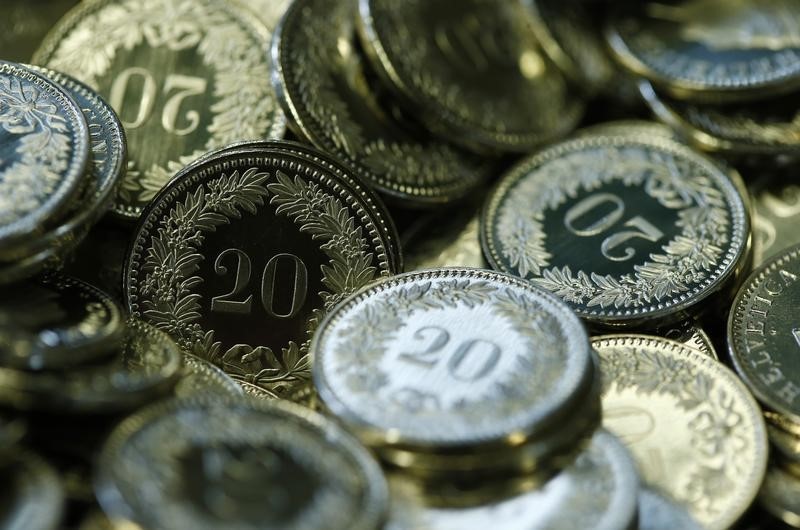ZURICH (Reuters) - Switzerland's economy shrank in the first quarter, data showed, as exporters felt the impact of a strong Swiss franc, which surged after the central bank removed the currency's cap against the euro in January.
Separate data pointed to an economic recovery towards the end of this year, tempering concerns that the country might slip into recession.
Gross domestic product (GDP) fell by 0.2 percent quarter on quarter compared to revised growth of 0.5 percent in the previous quarter, the State Secretariat for Economic Affairs (SECO) said in a statement on Friday.
The fall was steeper than the 0.1 percent drop forecast by economists in a Reuters poll.
Meanwhile, Switzerland's leading indicator for May rose more than expected, so while an economic recovery could not be expected immediately, the likelihood of one in about six months had increased, the KOF Swiss Economic Institute said on Friday.
RECESSION RISK
The removal of the 1.20 francs per euro cap on Jan. 15 sent the Swiss currency soaring, creating problems for exporters - the engine of the Swiss economy. Exports and industrial orders are sinking, data showed on Thursday.
Friday's GDP data, the first to cover the period immediately after the cap's removal, raised the prospect of Switzerland entering recession - defined as two straight quarters of negative growth - for the first time since 2009.
"We expect that second-quarter GDP will contract by even more than the first quarter did, such that the Swiss economy can be said to be in a recession right now," said Bank J. Safra Sarasin economist Karsten Junius.
But Ipek Ozkardeskaya, an analyst at London Capital Group, said she expected the economy to recover in the second quarter on the ability of high-margin Swiss exporters to weather the franc shock.
"The KOF indicator is in line with the optimism that the recovery is certainly under way," said Ozkardeskaya, adding she expected the economy to be back on track from the third quarter.
The Swiss National Bank has said it will intervene in currency markets if necessary to keep the franc under control. It was trading at 1.034 per euro by 0830 GMT (9:30 a.m.).

Despite the removal of the cap, the mood among exporting firms indicates that the economy will hold up better than expected.